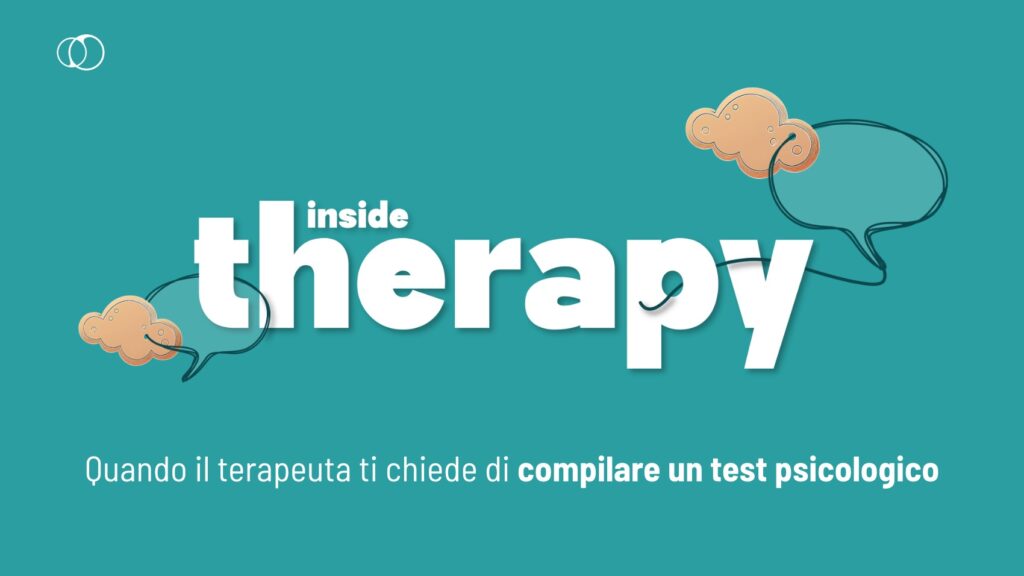
But didn’t we just have to speak?
Ezio gives a peek to the paper package delivered to him by the therapist. A questionnaire? But didn’t we just have to speak? All those questions instill a certain awe.
The therapist takes his perplexity. Explains that i psychological tests they are useful tools to collect information on his state of mental health and can be adopted in an initial phase of the psychotherapycall Psychodiagnostic evaluation. At this stage, information and data acquired by the therapist through tests, interviews and observations, will help him make a diagnosis and “sew” on Ezio an adequate treatment path. In the psychotherapyin fact, there are no “unique sizes”!
Here’s what we can expect from one Psychodiagnostic evaluation.
How long does a psychodiagnostic evaluation last?
The Psychodiagnostic evaluation It is carried out through test diagnostic type. It is test which allow you to formulate a diagnosis, as they detect the presence of specific aspects of mental functioning and behavior. Unlike these, i test Commonly proposed on the web, they are generally diagnostic value screening tests, used to self-evaluate and to investigate the risk and the probability that there may be a given condition. Ezio wonders: How long they will take these test? I thought I was immediately starting with the psychotherapy …
The therapist estimates that it will be a relatively short span of time, about two sessions, in which Ezio will compile some questionnaires for the purpose of diagnosis.
Better than a levy
The psychotherapist is a mental health specialist who does not use laboratory exams or radiographs to define the diagnosis. Questionnaires and psychological tests They represent non -invasive tools that can contribute to the evaluation of skills, mental states and behaviors, essential elements for diagnosis.
I Psyiciagnostic Tip they are the equivalent, in psychotherapyof any specialist medical examination. Some questionnaires present a greater number of questions and for this reason they may appear prolongable and demanding. Generally, these are tests that investigate complex aspects, such as personality traits. Mostly, i Psyiciagnostic Tip They are processed in the form of statements or questions to answer to choosing from some alternatives provided. Better than a levy, right?
The feedback of the psychodiagnostic evaluation
Once the Psychodiagnostic evaluationthe therapist will examine the results and provide Ezio to detailed feedback. This feedback can include a diagnosis and any treatment indications. The therapist will explain what the scores obtained by Ezio mean, will answer his questions and, together with him, will focus on the following goals and passages.
Psychodiagnostic and false myths tests
Whatever the reason he pushed Ezio to ask for the help of a therapist, this is the first Psychodiagnostic evaluation of his life. An experience that could disoriently disorient, or even appear intimidating. This also due to common concerns, false myths and prejudices that surround the experience of filling in a Psychologic testor. Here are some of the most widespread.
What if I give the wrong answer?
There are no right or wrong answers. THE test psicodiagnosticThe simply show where you place yourself compared to other individuals of your own age, which represent the average of the population. It is impossible to make a mistake psychological test! It provides a wide overview of the strengths and weaknesses of your psychological functioning.
Will I be judged? The purpose of the Psychodiagnostic evaluation It is not judging Ezio, but understanding it and helping him. Therapists are formed to be non -judgmental and support.
Too difficult … I don’t understand anything!
I Psyiciagnostic Tip “A photograph of your way of thinking, feeling and acting in everyday life take place. Generally, they are exposed in a clear linguistic form and close to the way people describe their experiences. In any case, the therapist may provide the necessary support in the compilation phase.
I already know everything … I did an online test!
I test Online are often unreliable, not standardized and not recognized by the international scientific community. They are also generally test of screening, or self -assessment, but do not allow to formulate a diagnosis. It is essential to verify the sources consulted online and rely on scientifically valid and useful resources for diagnosis, such as i psychological tests provided by the therapist.
I don’t need a psychological test
Both therapists and patients benefit from the results of psychological testsbecause they provide very useful information regarding realistic objectives and therapeutic results, based on accurate diagnosis. Furthermore, even if the diagnosis is not under discussion, a Psychodiagnostic test It can offer information about the person’s strengths and current difficulties. A test It can prove to be a useful ally in the planning of the treatment and to ensure that the therapeutic experience is as effective as possible.
Everyone will know the results of the test!
The results of the Psychodiagnostic evaluation They are reserved and will be disclosed only to those with whom you decide to share them.
How to prepare for the first psychodiagnostic evaluation: advice and expectations
Be honest and open
The Psychodiagnostic evaluation It is designed to help you, so it is important to be honest in the answers and open on your experiences. The more sincere and helpful you will be, the more accurate and useful the evaluation will be.
Know your clinical, personal and family history
Before Psychodiagnostic evaluationtake time to think about your personal history, including any past medical conditions, mental health problems or significant events in life. It is important information for the therapist, in order to understand your background and your current situation.
Bring the necessary documents (or sending via e-mail)
If you have previous medical or psychological folders, you can bring them with you on the day of the evaluation or, for convenience, send them in advance by e-mail to the therapist. This will allow him to examine your story before the Psychodiagnostic evaluation and get precious information.
Prepare the questions
If you have questions about the process of Psychodiagnostic evaluationwrite in advance. During the interviews, do not hesitate to ask the therapist to clarify any aspect that you are not sure.
Do not “practice” with the test in advance
This could distort the results, and usually not in your favor. Furthermore, it will not give the therapist an accurate representation of your psychological functioning.
If you have chosen to start a psychotherapy based on a scientific approach and on proven effectiveness techniques, recommended by the main international guidelines, i psychological tests self -administered they will be able to keep you company during the entire path. Fill in periodically (even with a weekly frequency) monitoring test, it will allow you and your therapist to verify the trend of yours psychotherapy and check the results obtained step by step.





